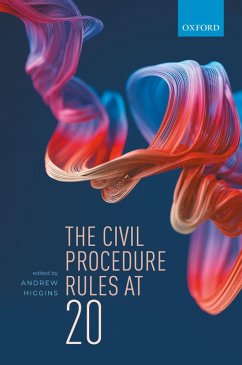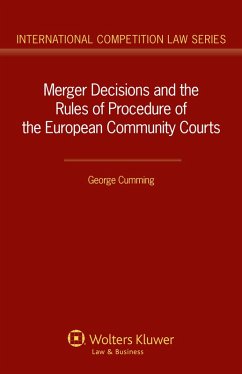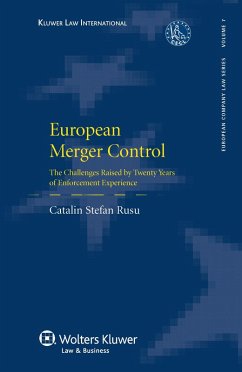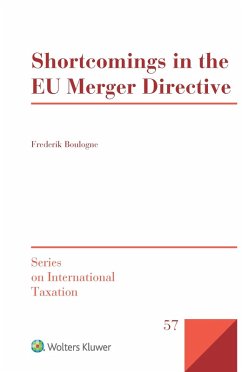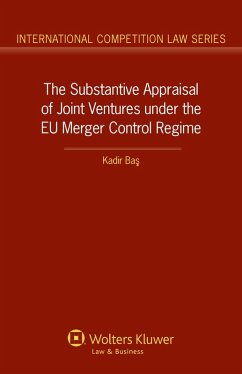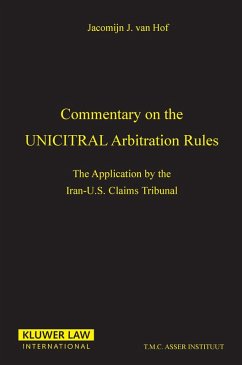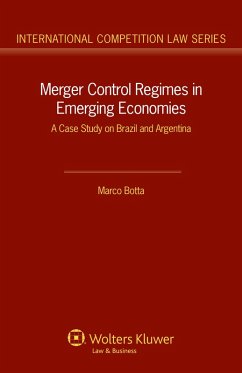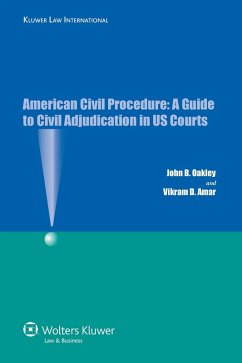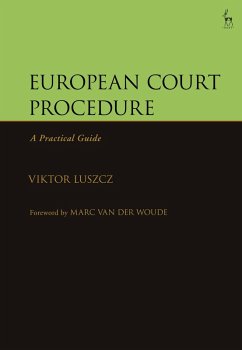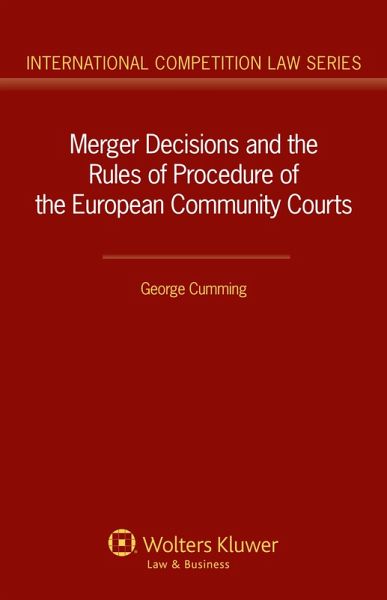
Merger Decisions and the Rules of Procedure of the European Community Courts (eBook, PDF)
Versandkostenfrei!
Sofort per Download lieferbar
165,95 €
inkl. MwSt.

PAYBACK Punkte
83 °P sammeln!
Article 340 TFEU, which provides a method of compensation for victims of the Commission's errors, is invoked as the basis for actions against Commission decisions under the Merger Control Regulation. Accordingly, the rules of procedure of the Community Courts come into play. This probing analysis asks the important questions: What limits can be imposed on the discretion of the Community Courts acting within their own rules of procedure? Is the manner in which the Court of Justice interprets those rules sufficient?Focusing on the crucial Court responsibilities of investigating facts and assessi...
Article 340 TFEU, which provides a method of compensation for victims of the Commission's errors, is invoked as the basis for actions against Commission decisions under the Merger Control Regulation. Accordingly, the rules of procedure of the Community Courts come into play. This probing analysis asks the important questions: What limits can be imposed on the discretion of the Community Courts acting within their own rules of procedure? Is the manner in which the Court of Justice interprets those rules sufficient?Focusing on the crucial Court responsibilities of investigating facts and assessing economic damage in relation to the type of non-contractual liability apparent in antitrust cases, the author convincingly demonstrates that the scope for 'case management' by the Courts is strictly limited,and may engender information or evidentiary deficits that contravene ECHR Art 6.1 as well as the principles of effective judicial protection and rectitude of decision. A claim for compensation pursuant to Art 340 TFEU may be struck merely because the basic elements of the cause ofaction cannot be established to a minimal level.As a penetrating analysis of the restricted discretion which the Community Courts exercise as distinct from the statutory context in which they operate, this book clears new ground in EU law. Showing that Commission decisions in antitrust cases which consider hypothetical futuresituations in the event of a proposed merger being carried out are not easily reconcilable with the judicial review function of the Courts, particularly when such decisions have financial and other adverse consequences, the author provides lawyers, policymakers, and academics in EU competition law with a new and challenging perspective on their field.
Dieser Download kann aus rechtlichen Gründen nur mit Rechnungsadresse in A, B, BG, CY, CZ, D, DK, EW, E, FIN, F, GR, HR, H, IRL, I, LT, L, LR, M, NL, PL, P, R, S, SLO, SK ausgeliefert werden.




